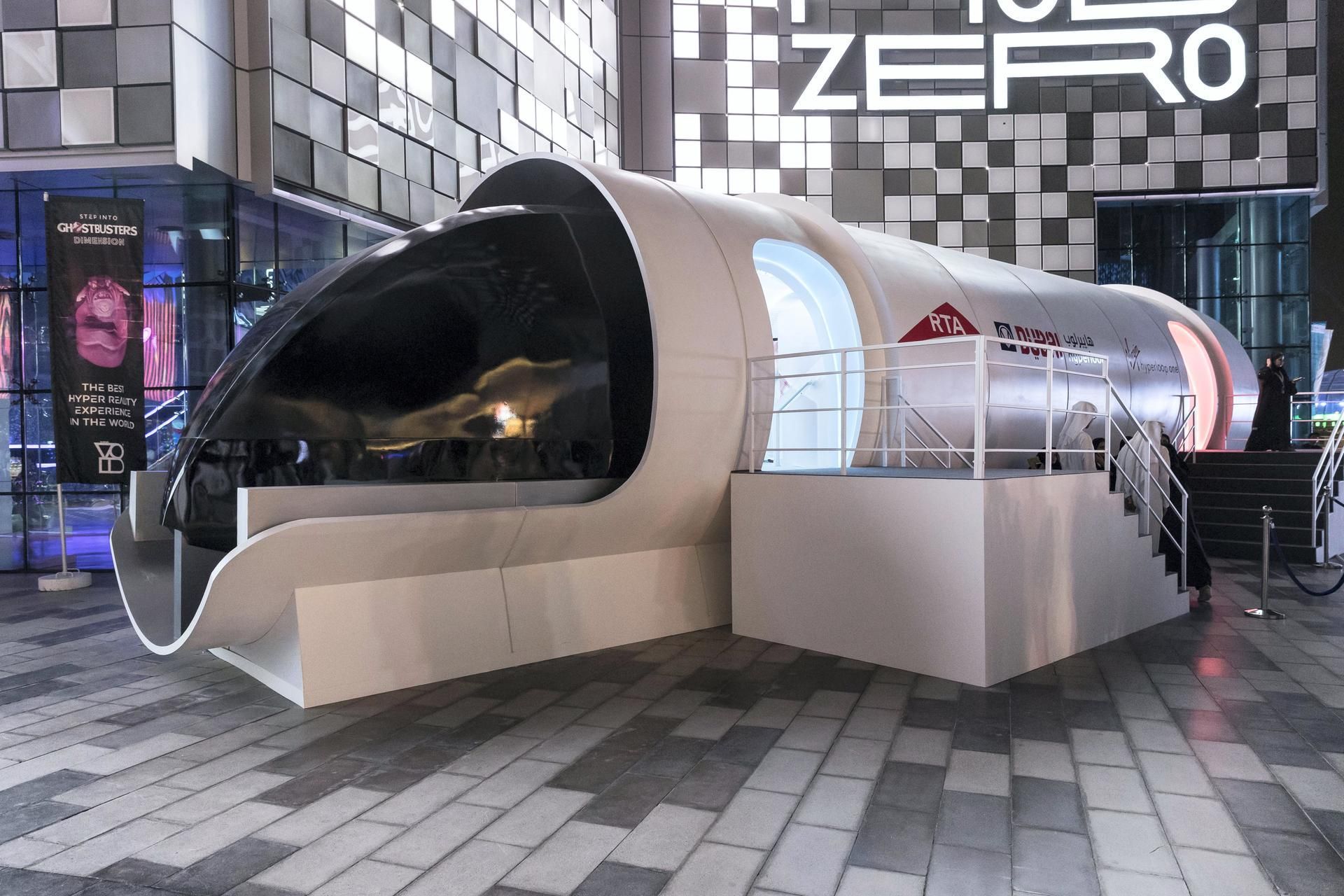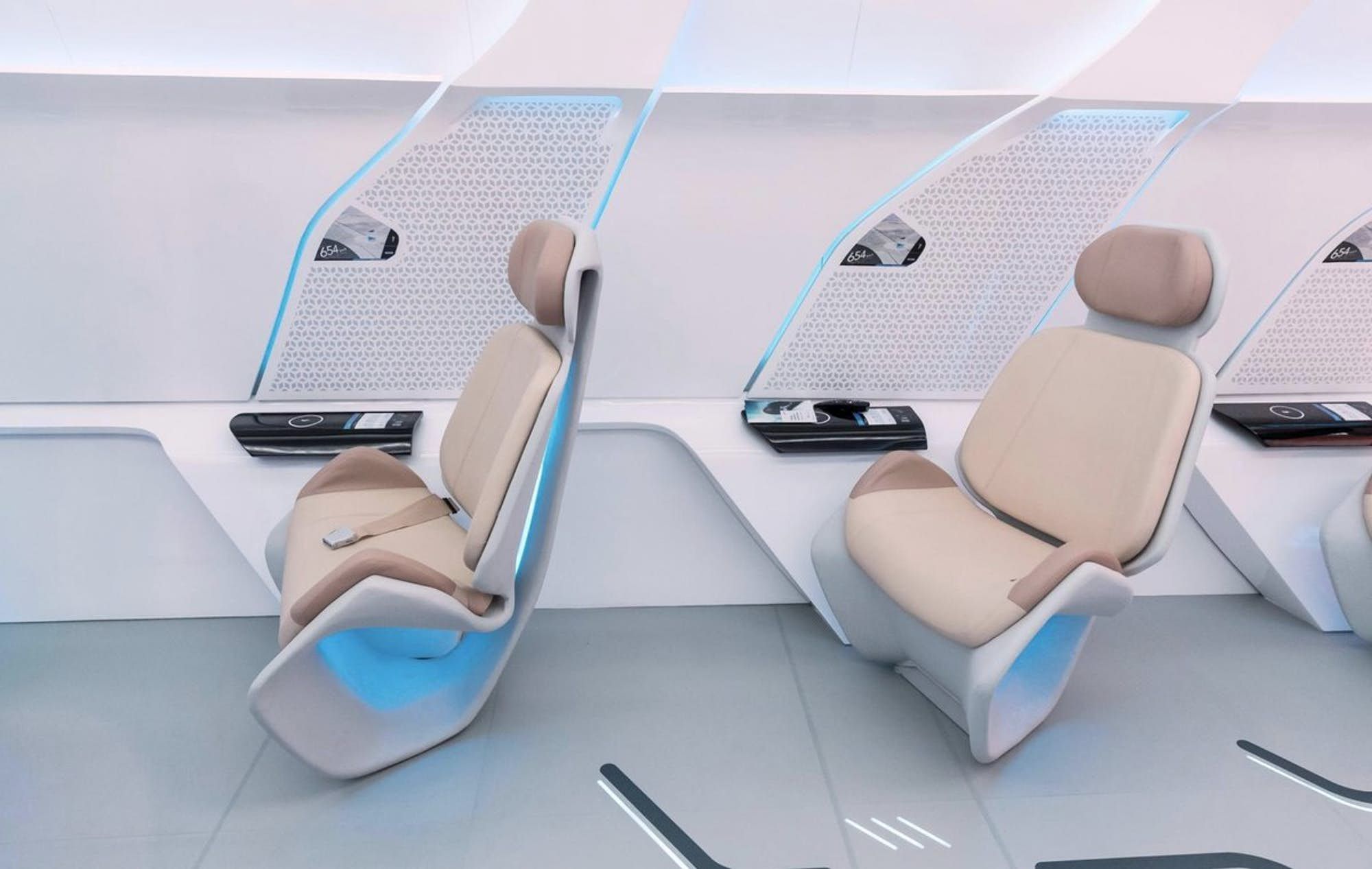Virgin’s dream of bringing Hyperloop One to life took a major step forward when the company unveiled a full-scale prototype model of the passenger pod that it will use on the network. The unveiling took place in Dubai with the help of the country’s Roads Transport Authority as part of UAE Innovation Month. The 8.7-meter pod comes with a futuristic-looking capsule that was designed, in part, by BMW.
The pod itself looks amazing in an “I-can’t-believe-it’s really-here-way.” It’s also big enough to accommodate at least ten people. Inside, there’s a plush white interior and a bevy of high-definition screens that will serve multiple purposes, including displaying travel information, as well as entertainment options. The white interior is complemented by cream and beige leather seats that were designed by no less than BMW. Blue and red neon lights illuminate the cabin, creating a colorful ambiance that should appeal to commuters. The pods are also divided into two different sections, or “classes.” The high-end class is called “gold class,” and it will seat just five passengers. Those who miss out on the “gold class” section of the pod can settle for the “silver class,” which will seat 14 people.
The pod was designed with the idea of creating a futuristic atmosphere for those who are riding it. "There will be no windows,” RTA executive director Abdulredha Abu Alhassan told theKhaleej Times. “However, there will be interactive entertainment screens at the armrest of the seats. The seats have been designed in a very futuristic manner.”
Virgin’s goal for Hyperloop One is tied into the core principles of the technology: make public commutes faster and more accessible to more people. The company is looking to launch the high-speed transportation system sometime in 2020, giving commuters the opportunity to drastically cut their commutes from where they are today. According to Virgin, the 87-mile journey between Dubai and Abu Dhabi can be achieved in just 12 minutes, much faster than the 90 minutes it usually takes to get from one location to another using a car. Similarly, Hyperloop One is expected to cut the travel time from Dubai to Riyadh in 48 minutes, Doha in 23 minutes, and Muscat in 27 minutes.
Virgin’s timetable gives it two years to not only develop Hyperloop One but to also create an infrastructure that can connect all these Middle Eastern cities together. At the moment, the company is still in the stage of testing out the pods, which it started in August 2017 at its DevLoop test site in Nevada. It has successfully reached speeds of 190 mph in around five seconds and 192 mph in 10.6 seconds.
Clearly, there’s still a long way to go before the Virgin Hyperloop One becomes more than just a pipe dream. But based on how fast developments are going, it wouldn’t be shocking if the high-tech transport system is up and running sooner than we expect.
References
Read more about Hyperloop One.
Read more technology news.


